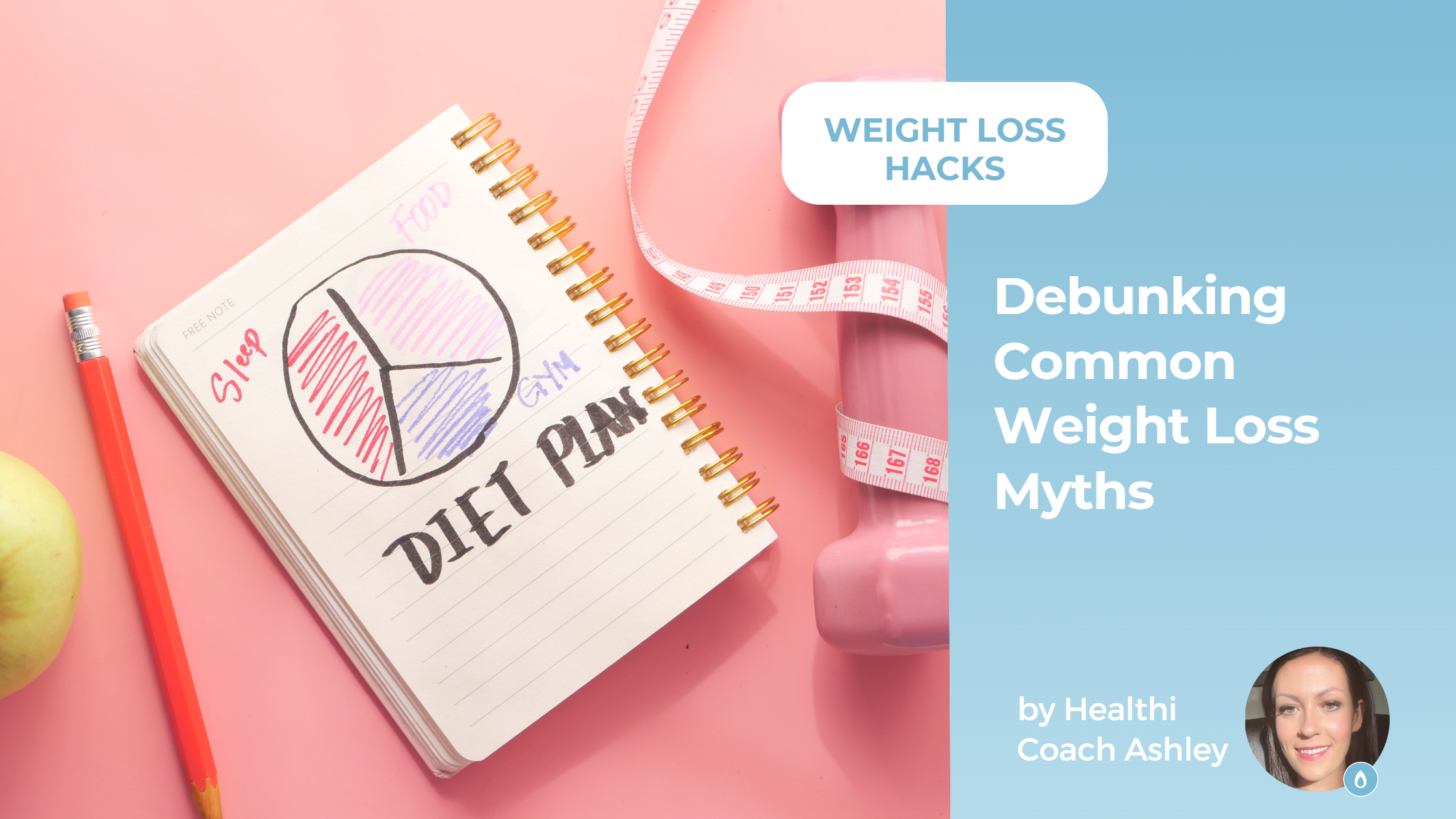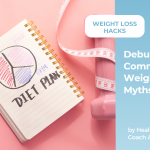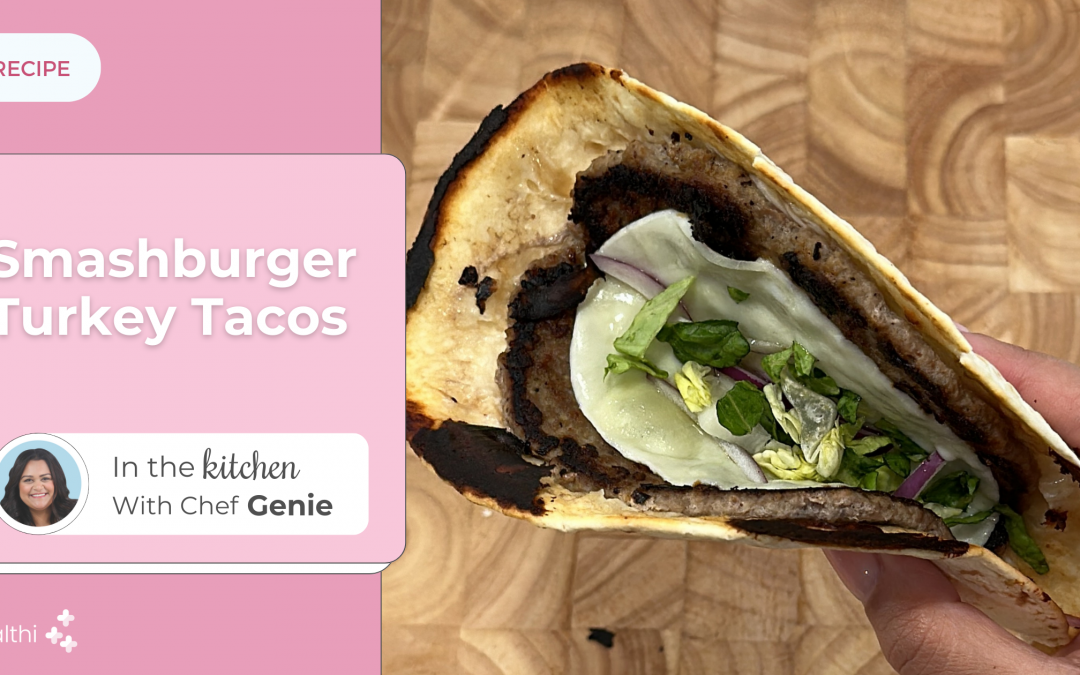Debunking Common Weight Loss Myths
Hey Healthi friends, Coach Ashley here!
Are you tired of hearing conflicting advice about weight loss? Do you find it hard to figure out where to start when trying to become a healthier version of yourself? If you’re nodding your head, you’re not alone. The internet is full of myths and misconceptions surrounding weight loss, making the entire process more confusing and challenging than it needs to be.
As a Healthi coach, I’ve seen these myths circulating for years. That’s why I want to set the record straight and debunk some of the most common weight loss myths out there.
Myth #1: Crash diets are an effective way to lose weight quickly.
Fact: Crash diets that severely restrict calories and certain food groups may lead to quick weight loss in the short term. However, they are not sustainable or healthy long term. When you cut out whole food groups, you’re left feeling unsatisfied and more likely to overeat later on. Plus, when you drastically cut your calorie intake, your body starts slowing down your metabolism, making it harder to lose weight. Your body starts to store food as fat instead of burning it off as energy. Additionally, crash diets often lead to muscle loss, which can actually make it easier to regain weight later on. Instead, focus on making gradual changes to your diet and lifestyle that you can stick to over the long term.
Myth #2: Carbs are the enemy and should be avoided.
Fact: Carbohydrates are an essential nutrient and the main source of energy for our bodies. Cutting out carbs entirely can be detrimental to your health and make it harder to stick to a healthy diet over the long term (re: myth #1). Instead of cutting carbs entirely, focus on choosing complex carbs like whole grains, fruits, and vegetables that are high in fiber and provide sustained energy throughout the day.
Myth #3: Fat should be avoided.
Fact: Not all fat is bad fat. For a long time, the idea was that to lose weight, you had to avoid eating fat at all costs. This led to the rise of low-fat and fat-free products, which often contained higher amounts of sugar or other unhealthy ingredients to make up for the lack of flavor from the fat. Now, I’m not saying you should never consume low-fat or fat-free products. I myself use them on occasion as well. However, research has shown that not all fats are created equal, and some are actually essential for good health. Unsaturated fats, like the ones found in nuts, seeds, avocados, and olive oil, can actually help with weight loss by reducing inflammation and promoting satiety (feeling full). It’s important to remember that fat is still calorie-dense, so be sure to continue counting your calories and BITES. But, cutting out all fat is not a sustainable or healthy approach to weight loss.
Myth #4: You need to exercise for hours every day to lose weight.
Fact: Exercise is important for overall health and can aid in weight loss. However, it’s not necessary to spend hours at the gym every day. Studies have shown that shorter, high-intensity workouts can be just as effective as longer workouts. Simply incorporating more movement into your day-to-day life, like taking the stairs instead of the elevator or going for a walk after dinner, can add up to significant calorie burn over time. The point is, don’t stress yourself worrying about getting to the gym for hours every day. Do what you can, when you can. And just remember the tremendous health benefits that exercise has to offer, especially combined with a balanced and Healthi diet.
Myth #5: Eating at night will make you gain weight.
Fact: The time of day that you eat does not have a significant impact on weight gain or loss. What matters most is the total number of calories you consume throughout the day. Eating a balanced, healthy meal at night can actually be beneficial, since it can help keep you feeling full and satisfied and prevent overeating later on. Now, if snacking late at night seems to be leading to weight gain, it could be that you’re simply going over your daily caloric intake. What it boils down to is calories in vs. calories out.
By debunking these most common weight loss myths, we can begin to adopt a more realistic and (this one is super important) sustainable approach to weight loss. Remember that there are no quick fixes or shortcuts to weight loss and your health goals. Instead, focus on making small, gradual changes to your diet and lifestyle that you can stick to long term. I’ve always said, “If you don’t enjoy it, you’re much less likely to stick with it.” With patience, consistency, and a willingness to learn, you can achieve your weight loss goals and live a happier, Healthi-er life.




















